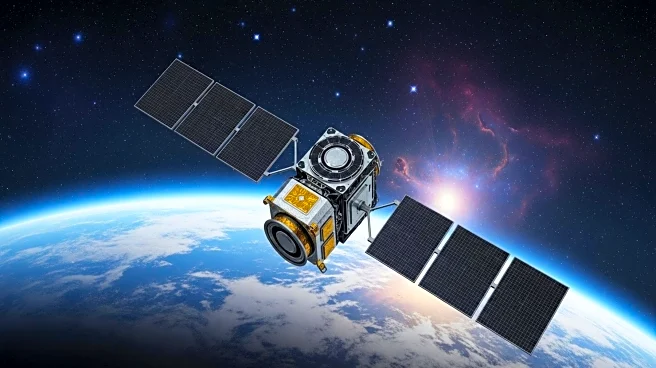What's Happening?
The small satellite industry is experiencing significant advancements, as discussed during the 39th annual Small Satellite Conference in Salt Lake City, Utah. Industry leaders highlighted the increased operational lifetimes of small satellites, now reaching up to 10 years, which allows them to compete alongside larger satellite missions. Companies like Ursa Major are focusing on reliability and strategic vertical integration to enhance their supply chains. The industry is also witnessing a shift in the definition of small satellites, with mass production capabilities becoming a key factor. Additionally, niche innovations, such as nighttime imagery, are emerging as potential survival strategies for companies in this sector.
Why It's Important?
The evolution of the small satellite industry is crucial for the broader space sector, offering more affordable and reliable options for satellite missions. This development can lead to increased accessibility to space for various stakeholders, including governments, private companies, and research institutions. The focus on reliability and strategic integration can improve supply chain efficiency, reducing costs and delays. As the industry continues to innovate, it may drive technological advancements and create new market opportunities, benefiting the U.S. economy and maintaining its competitive edge in the global space industry.
What's Next?
The small satellite industry is likely to continue evolving, with companies exploring new technologies and production methods to meet growing demand. The focus on niche innovations and strategic partnerships may lead to further diversification of satellite applications. As launch costs decrease and rideshare opportunities increase, the industry could see a surge in satellite deployments, potentially transforming the landscape of space exploration and communication. Stakeholders will need to adapt to these changes, ensuring they leverage new opportunities while addressing challenges such as supply chain bottlenecks and regulatory uncertainties.
Beyond the Headlines
The shift in the small satellite industry may have broader implications for global communication networks, environmental monitoring, and defense strategies. As small satellites become more reliable and versatile, they could play a pivotal role in addressing climate change, enhancing global connectivity, and improving national security. Ethical considerations, such as space debris management and privacy concerns, will need to be addressed as the industry expands. Long-term, the integration of small satellites into larger systems could redefine the boundaries of space exploration and utilization.










